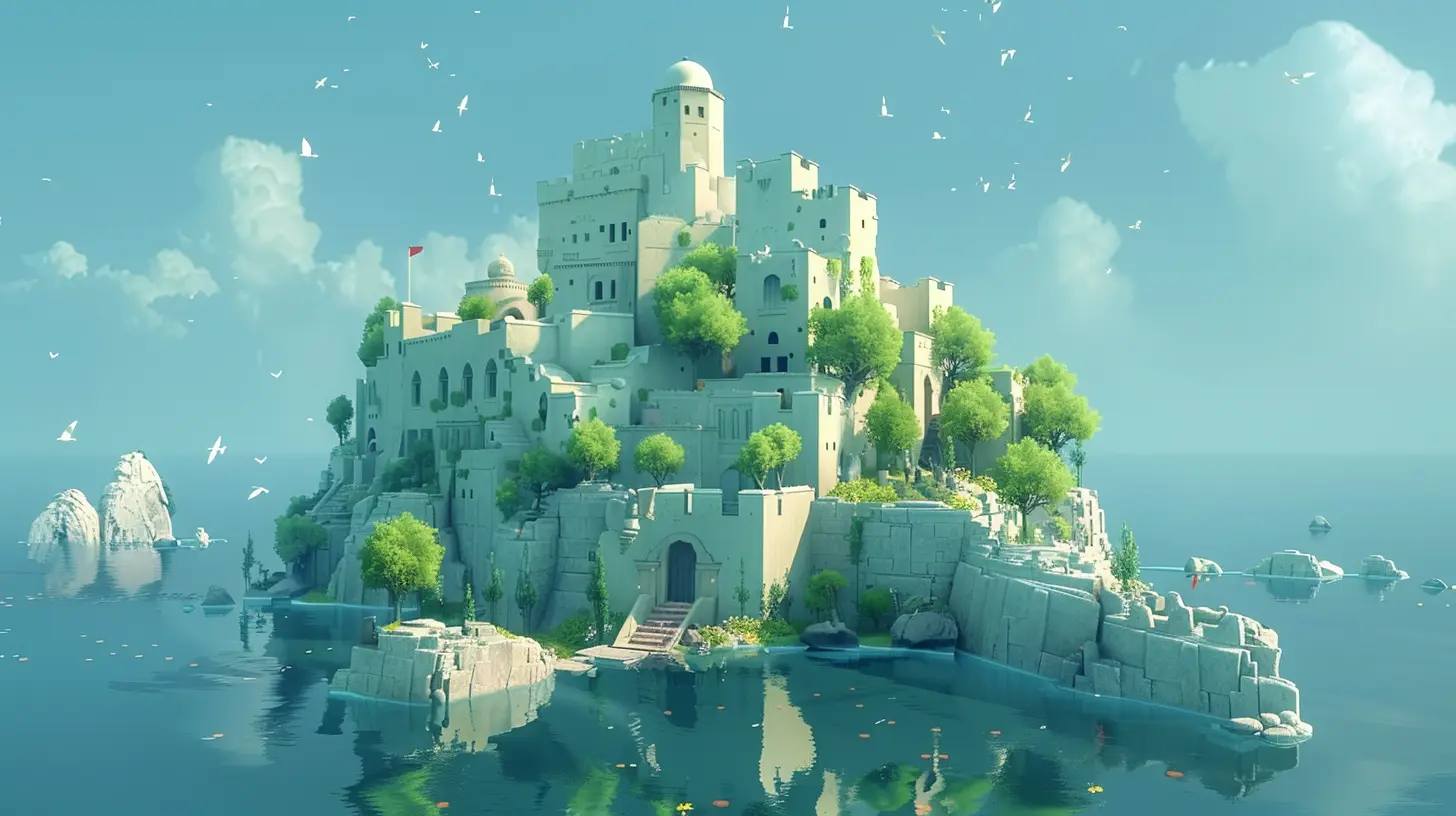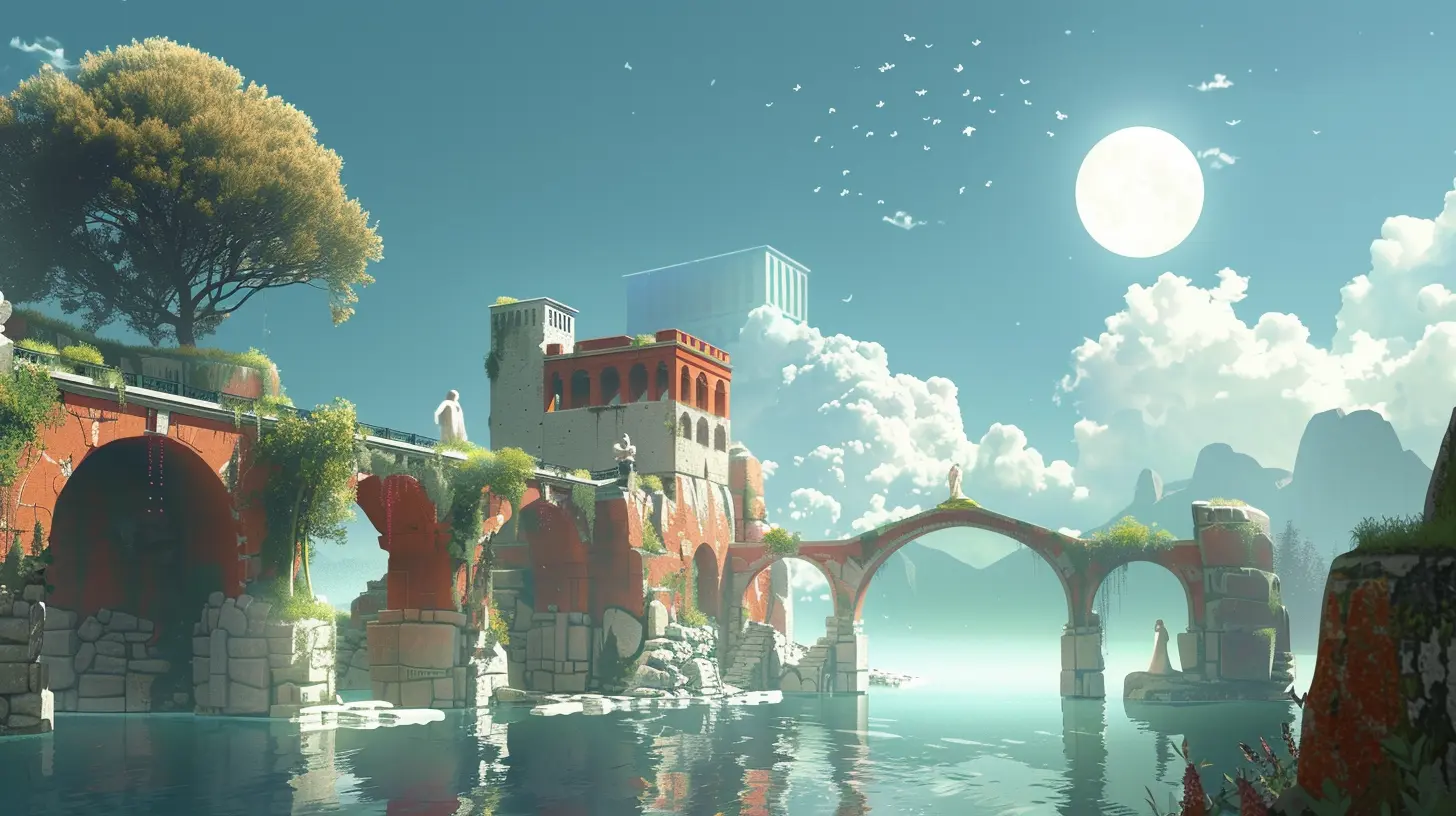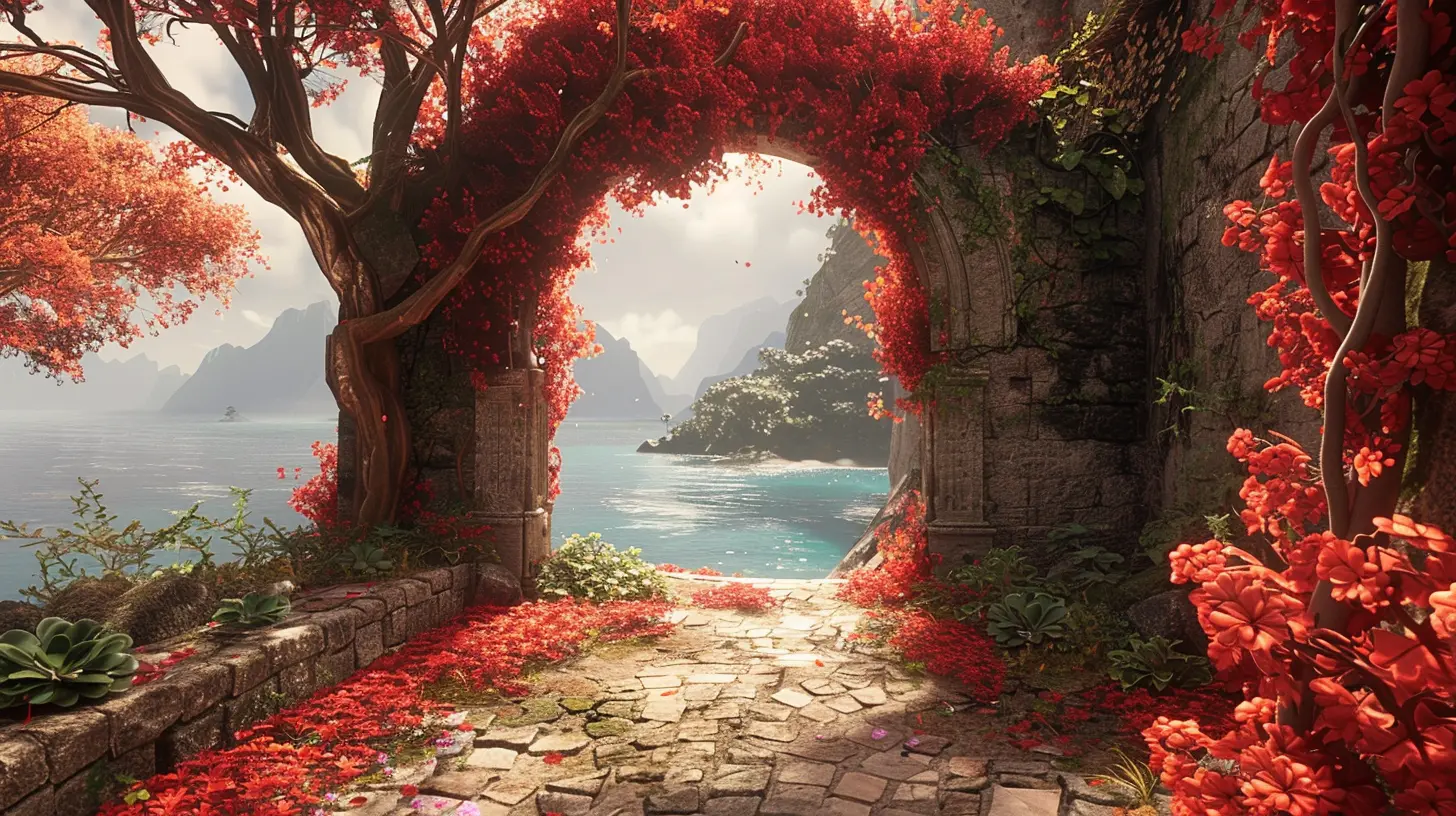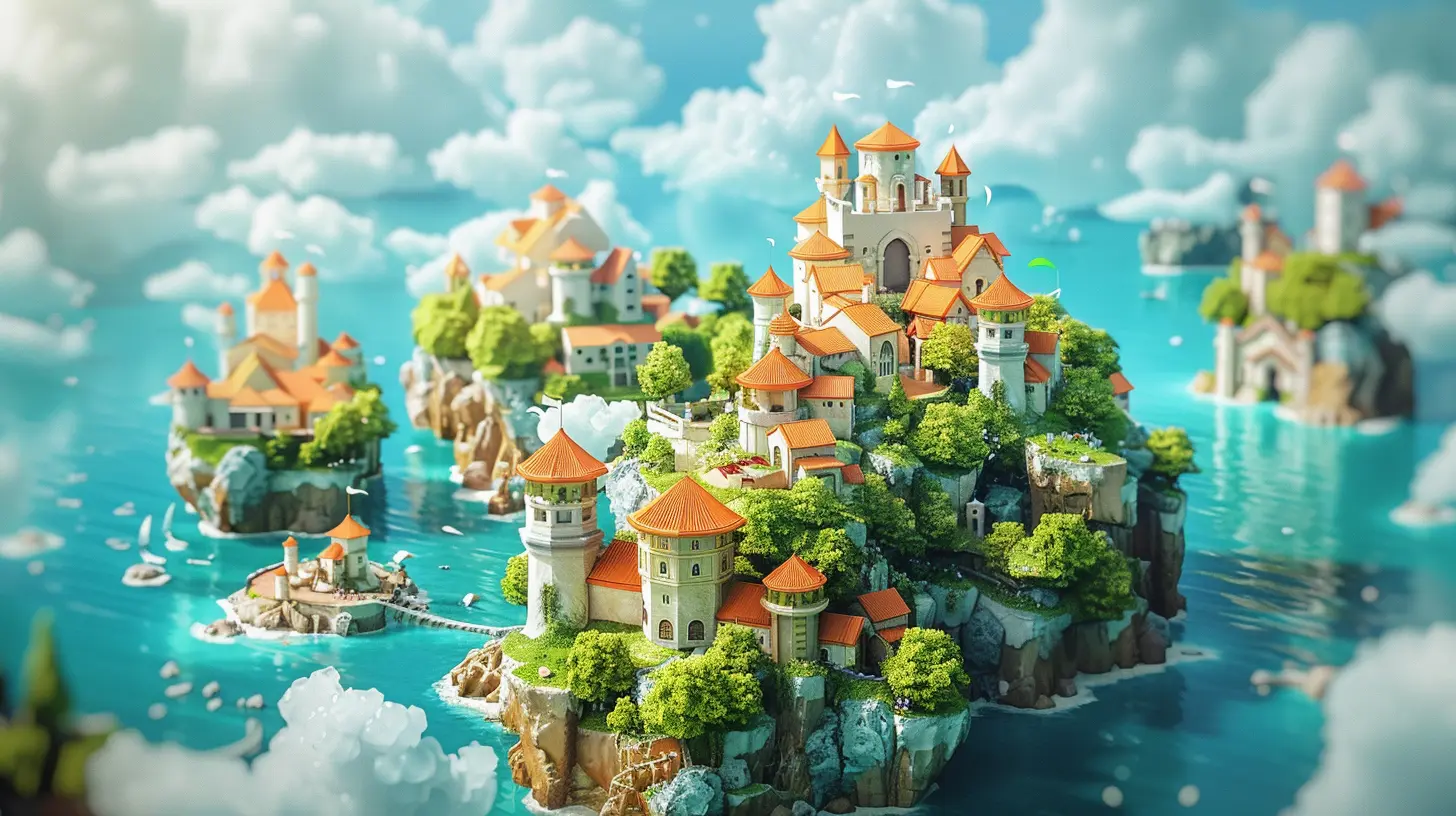Puzzle Game Worlds: Exploring Beautiful and Immersive Settings
7 July 2025
Let’s be honest — we don’t just play puzzle games for the brain-bending challenges. Sure, solving a tricky riddle feels amazing, but have you ever paused mid-puzzle just to admire the world around you? Yep, those surreal, dreamy, and sometimes downright bizarre puzzle worlds are half the fun. Whether you’re wandering through a mysterious island or zooming around abstract dimensions, puzzle game developers know how to wrap a labyrinth in eye candy.
In this post, we’re diving deep (like, Mariana Trench deep) into some of the most jaw-dropping, immersive, and beautiful settings in the world of puzzle games. Let’s nerd out together and celebrate the unsung heroes — the worlds that make our heads spin and our eyes sparkle.
Why Puzzle Game Worlds Matter More Than You Think
Okay, let’s put this out there — puzzle games are more than Sudoku with prettier graphics. They’re immersive experiences. Think of them like digital escape rooms but on steroids. The puzzles pull you in, sure — but the worlds? They trap you… in the best way possible.Great game design doesn’t just throw puzzles at you like spaghetti on a wall. It sets the mood. It nudges your emotions. Some even make you question if you’re still playing a game or if you’ve been teleported into some philosophical fever dream.
The Environment Becomes the Puzzle
Think back to that one level in a game where your puzzle-solving depended entirely on observing the environment. The sun’s angle, the echo in a cave, the color of a flower — it’s all interconnected. In puzzle games, the environment doesn’t just host the puzzles… it is the puzzle.And when a game nails this idea? Pure magic.
1. The Witness – A Kaleidoscope of Logic and Nature
Let’s kick things off with the grandmaster of immersive puzzle environments: The Witness.Imagine waking up alone on a sun-drenched island. No tutorials. No backstory. Just silence... and a network of strange panels begging to be solved. As you explore, you realize every part of the island is an interlocking piece of a massive, brain-warping jigsaw puzzle.
Every area has its own theme. Maybe it’s a vineyard with puzzles about symmetry, or a bamboo forest obsessed with sound. The island itself is the teacher, and your curiosity is the key.
Why It Rocks:
- No hand-holding. It respects your intelligence.
- The visuals? Like walking through a living painting.
- Environmental storytelling is subtle but deeply philosophical.
2. Monument Valley – An MC Escher Daydream
Ever wonder what it would feel like to stroll through an MC Escher painting? Monument Valley says, “Hold my illusion.”This mobile masterpiece flips gravity, warps perspectives, and twists architecture into something that looks like it belongs in a Salvador Dalí dreamscape. It’s gorgeous, elegant, and strangely peaceful — like a puzzle game wrapped in a cozy blanket.
You play as Princess Ida, navigating a world where staircases defy laws of physics and geometry is just a suggestion. The puzzles aren’t necessarily hard, but they’re mesmerizing.
Why It Rocks:
- Minimalist aesthetic packed with emotional punch.
- Rotating world mechanics that make your brain do somersaults.
- A soundtrack that makes your soul exhale.
3. Gorogoa – A Living Storybook
Now this one’s wild.Gorogoa is a puzzle game made up of illustrated panels — like comic book frames you can slide, zoom, and stack to solve intricate puzzles. And guess what? The entire game is hand-drawn. We're talking years of labor, and it shows.
The setting isn’t just one place — it’s a journey through emotions, memories, and history. One moment you’re in a quiet Eastern European-style kitchen, the next you're inside a temple layered with symbolism.
It’s not about navigating a 3D world — it’s about rearranging reality itself, bending time and space through beautifully strange art.
Why It Rocks:
- Unique puzzle design with no real comparison.
- Lush, vivid artwork that tells a story with zero words.
- A vibe that sticks with you long after the credits roll.
4. The Talos Principle – Existential Crisis, But Make It Pretty
If you ever wanted a philosophical crisis wrapped in digital ruins and laser puzzles, this one’s for you.The Talos Principle throws you into sprawling landscapes filled with ancient temples, futuristic machinery, and cryptic messages from your creator. You’re a robot, yes — but also a thinker. The world challenges not just your logic but your entire sense of self.
Visually, it’s a blend of post-apocalypse and paradise. Think Greco-Roman ruins meets sci-fi tech. You’ll go from sunny gardens to gloomy catacombs, always with the eerie feeling that someone (or something) is watching.
Why It Rocks:
- Deep, philosophical storytelling blended with silent world-building.
- Puzzles that are integrated into the environment, not shoved in.
- Mood-setting music and visuals that make you feel the weight of your decisions.
5. Manifold Garden – Gravity? Never Heard of Her
This game redefines space. Seriously.Manifold Garden is like stepping into the hypercube of your dreams. The world is made of infinite architecture, complex geometry, and gravity that changes depending on which wall you’re walking on (or falling from).
You solve environmental puzzles by redirecting water, manipulating cubes, and literally shifting your perspective. It’s confusing at first — in a “where even am I?” kind of way — but once it clicks, it’s pure flow.
Why It Rocks:
- Infinite world loops that mess with your spatial awareness.
- A minimalist color palette that somehow feels vast and epic.
- Mind-melting architecture that forces perspective-based thinking.
6. Baba Is You – The Rules Are the World
Okay, this one isn’t traditionally “beautiful” — but hear me out.Baba Is You is a game where the entire world is made up of logic blocks. You literally move words around the map to change the rules. "Baba is you"? Fine. But what if "Wall is you"? Now you're a wall. What if "Flag is win" becomes "Rock is win"? Now you’re chasing rocks.
The game world is built from language itself. It’s a code playground pretending to be a cute little puzzle game. And the art? Simple. But that simplicity just makes the mind-bending mechanics even more surreal.
Why It Rocks:
- The world is the mechanic. That’s next-level.
- Each puzzle feels like unlocking a new programming language.
- Surprisingly philosophical in an 8-bit kind of way.
Why These Worlds Stick With Us
Puzzle games aren’t just about clever mechanics — they’re about those ah-ha moments that happen not just in your head, but in your gut. And when a beautiful world is layered beneath all that logic, it elevates the experience into something almost spiritual.Let’s be real — these games can be frustrating. They can take you to the edge of madness. But then a bird chirps in the background, the sun reflects off a puzzle panel, or a wind chime dings when you get something right… and suddenly, you’re not annoyed anymore.
You’re part of the world.
And that? That’s the magic.
Honorable Mentions (For When You Want Just a Taste More)
There’s a buffet of puzzle games out there with wild, immersive settings. Here's a quick shoutout list for the completionists out there:- Antichamber – A mind-warping, color-coded place where walls lie and doors play tricks.
- RiME – A poetic journey through a mysterious island with puzzles tied to emotion.
- Fez – Classic 2D-to-3D world-flipping wrapped in a pixel art dreamscape.
- Tetris Effect – A spiritual rebranding of Tetris with cosmic visuals and thumping beats.
Final Thoughts: Puzzles Are the Portal, Worlds Are the Destination
Puzzle game worlds do something special. They turn thinking into feeling. They take logic, wrap it in beauty, and serve it with a side of awe.So next time you're solving that last panel, flipping that tower, or rearranging reality itself — pause for a second. Soak in the view. You’re not just solving a puzzle. You’re traveling through a world built just for your brain.
And that? Totally worth the screenshot.
all images in this post were generated using AI tools
Category:
Puzzle GamesAuthor:

Stephanie Abbott
Discussion
rate this article
2 comments
Rhett Mullen
Absolutely loved this article! There's something magical about getting lost in a beautifully crafted puzzle world. Can't wait to dive into these immersive settings myself!
October 22, 2025 at 3:38 PM

Stephanie Abbott
Thank you so much! I'm thrilled you enjoyed it and found the magic in puzzle worlds. Happy exploring!
Kael Morgan
This article beautifully captures the essence of puzzle games and their enchanting worlds. It reminds us how immersive settings enhance our experiences, making each challenge more rewarding. Thank you for sharing this insight!
July 17, 2025 at 3:38 AM

Stephanie Abbott
Thank you for your kind words! I'm glad you found the article resonant and that it highlights the magic of immersive puzzle game worlds.


